Dad David Woodland started a heated discussion online after he posted that he pays his oldest son to read books. David gives his son 1 dollar for every book read and thinks that it’s a great investment. Meanwhile, his kid believes that he’s ripping his dad off by getting paid to read.
David’s post got a lot of attention online. He got nearly half a million likes on Twitter and made a large splash on Reddit where lots of people reposted his tweet. However, people were divided over whether or not what the dad is doing is right.
Some internet users fully supported David and thought that it’s a good way to get his son to develop positive habits. However, others were much more critical of David’s technique. Let’s see what both sides think, shall we, dear Pandas?
More info: Twitter | Instagram

Image credits: David Sven
David Woodland recently shared a parenting tactic that got a lot of attention all over the internet

Image credits: DavidSven

Image credits: DavidSven
David’s post rubbed some people the wrong way and they explained why they think he’s doing more harm than good. Some said that the moment you stop paying someone for what they should be doing anyway, they’ll lose motivation.
Others pointed out that the point isn’t to read lots of books as quickly as possible but to really understand each one of them. While some Twitter users hinted that throwing money into the mix gets rid of the joy of learning and pointed out that the kid reading for money sounded a lot like a job.
And in case you were wondering how cheating is prevented, David told the internet that his son gladly shares lots and lots of details about the newest book that he read.
The dad started a heated discussion online about whether or not paying kids to read is a good idea
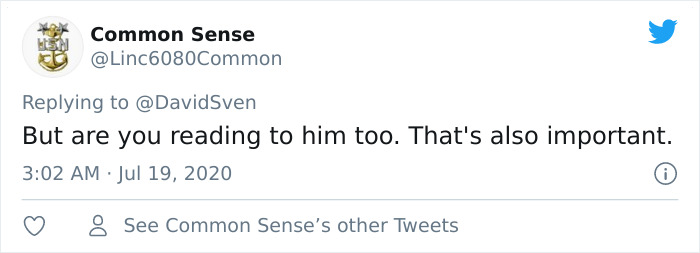
Image credits: Linc6080Common

Image credits: DavidSven
Some Twitter users said that using money as an incentive is a bad idea

Image credits: jkostecki_rei
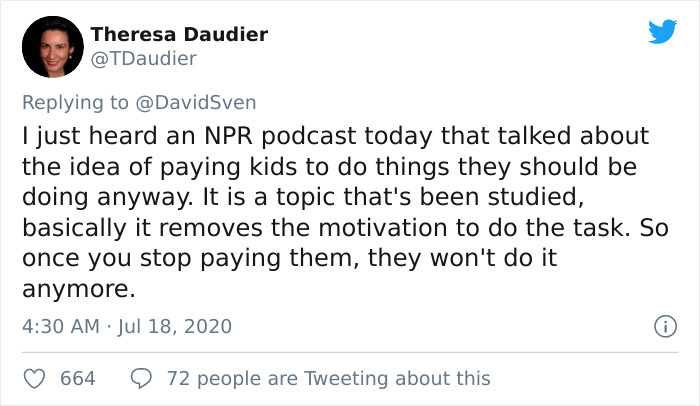
Image credits: TDaudier
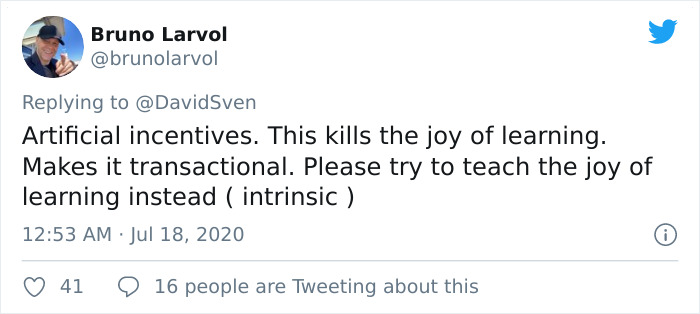
Image credits: brunolarvol
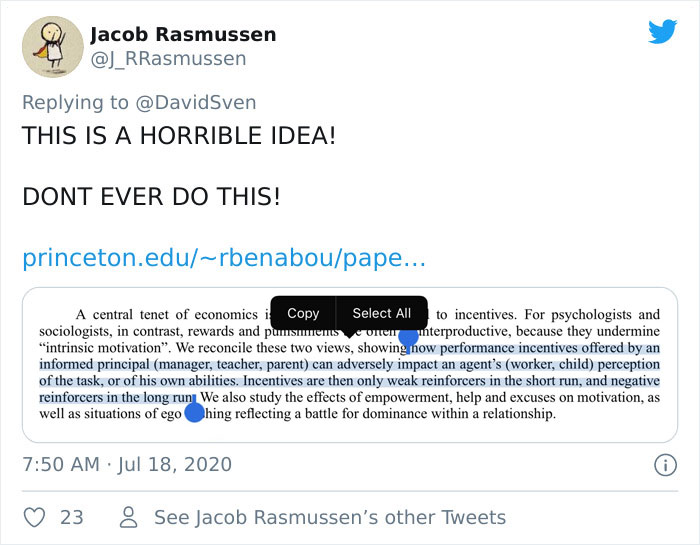
Image credits: J_RRasmussen

Image credits: pandahobbs96

Image credits: bandetaiwo
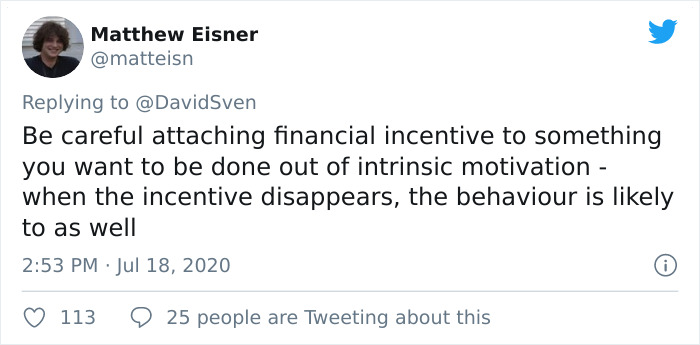
Image credits: matteisn
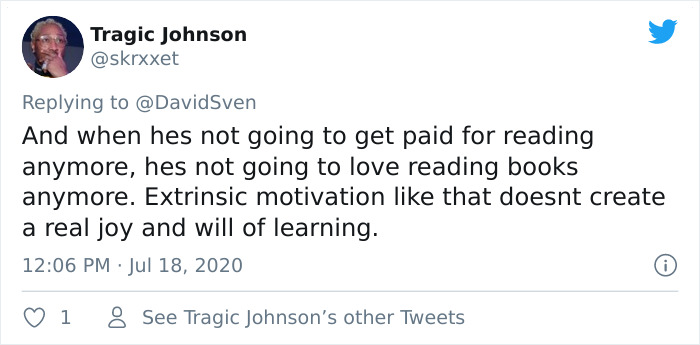
Image credits: skrxxet
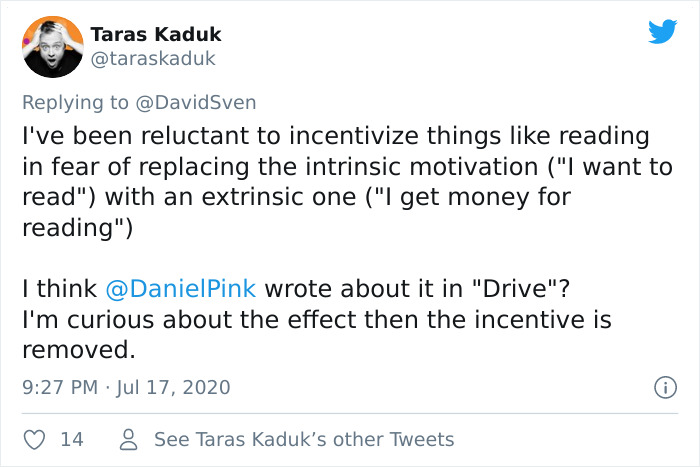
Image credits: taraskaduk
Others said it’s perfectly fine to use money as an incentive:
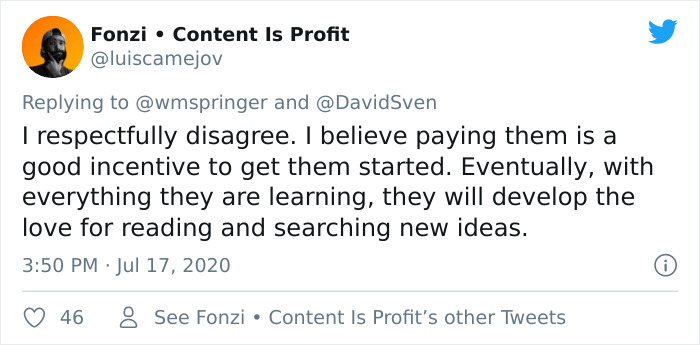
Image credits: luiscamejov
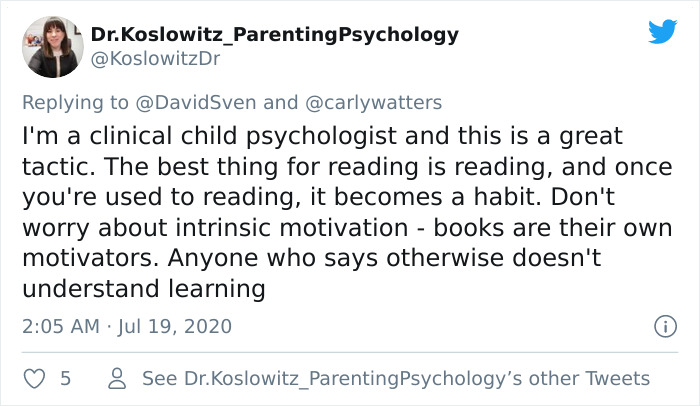
Image credits: KoslowitzDr
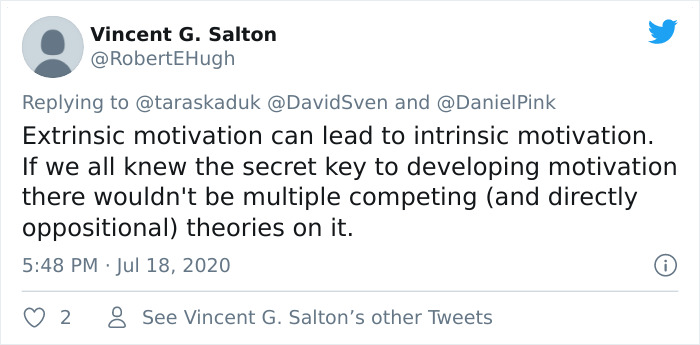
Image credits: RobertEHugh

Image credits: littleredsm
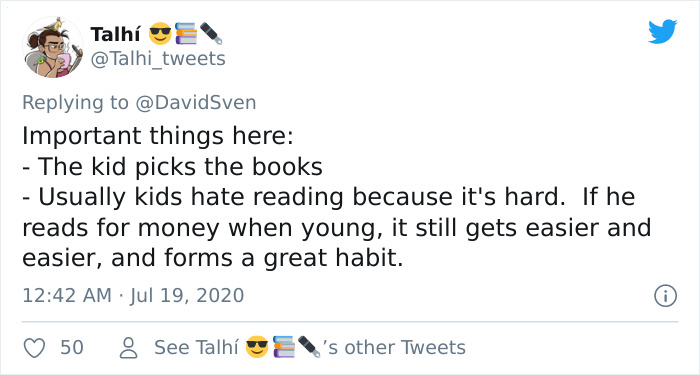
Image credits: Talhi_tweets
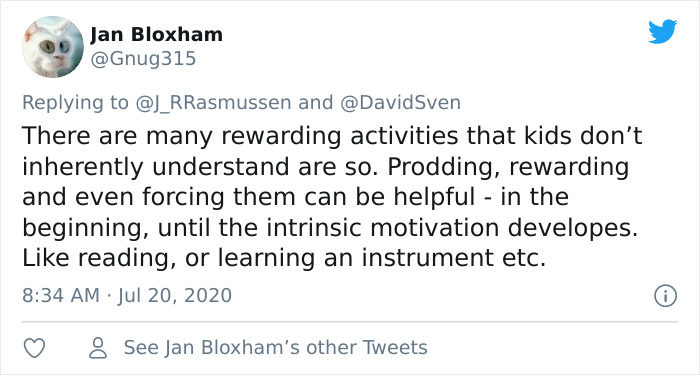
Image credits: Gnug315
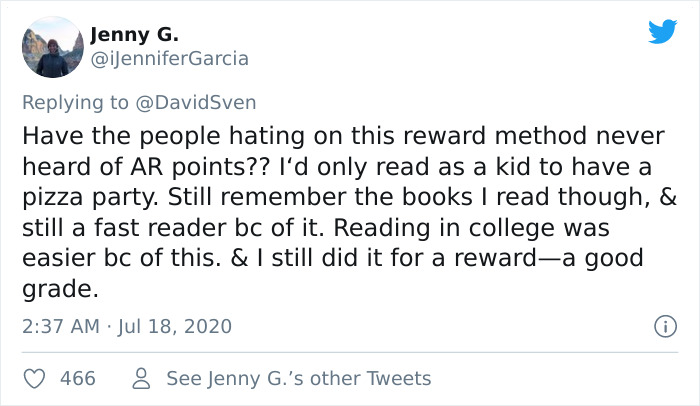
Image credits: iJenniferGarcia
Meanwhile, other parents said they’re trying out similar tactics with their own children

Image credits: RustFamily
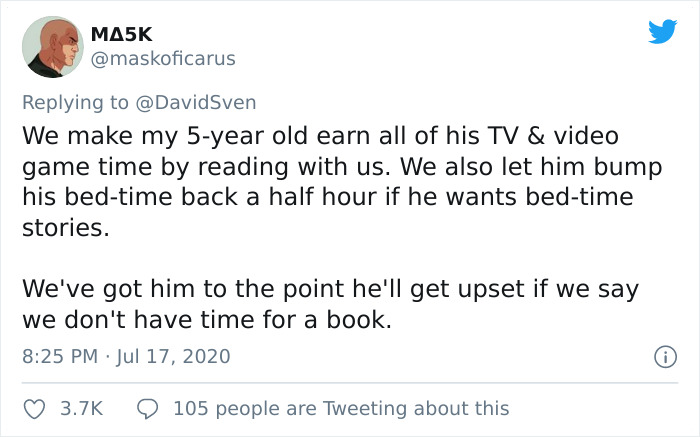
Image credits: maskoficarus

Image credits: lexieeWABO
People who received money as an incentive to read in the past also shared how it all turned out
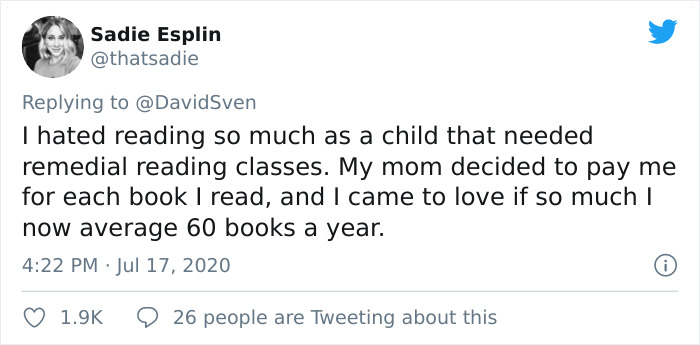
Image credits: thatsadie
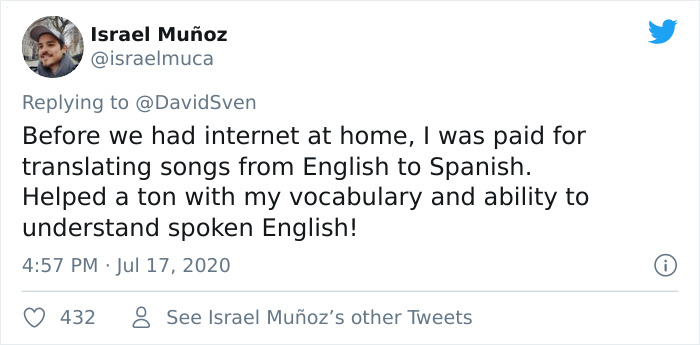
Image credits: israelmuca

Image credits: jordanshrinks

Image credits: madisontewers
The dad ended the discussion by sharing more about his oldest son

Image credits: David Sven

Image credits: DavidSven
According to the New York Times, a whopping 60 percent of parents admitted to paying their kids to read. However, research tends to show that positive behavior ends when the rewards dry up. “If you pay kids to read you’ll get them to read. They’ll continue to read until you end the experiment, and then they’ll stop,” Edward Deci, a professor of psychology at the University of Rochester, explained.
In that case, non-material ‘bribes’ might be part of the answer. While in-depth discussions with parents about what the kids read or even starting up a book club might be another part of teaching kids to value reading for reading’s sake.
Would you ever pay your child to read books, dear Pandas? What do you think of David’s technique? Share your thoughts with us in the comments below.
from Bored Panda https://ift.tt/2OIWNor

No comments:
Post a Comment